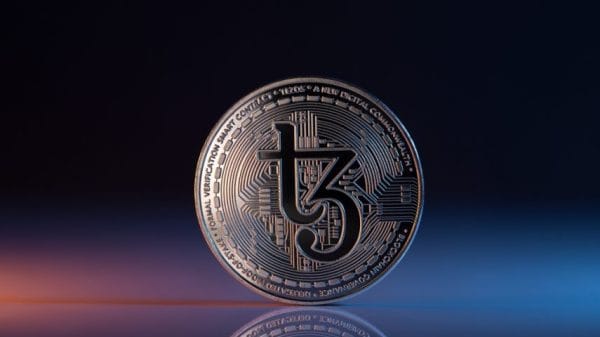Cryptocurrencies and the internet are closely linked, with digital assets depending on the internet’s infrastructure for secure transactions and blockchain integrity. Concerns have been raised about the possibility of global internet blackouts due to government actions. In such a scenario, the ability of cryptocurrencies to function without the internet becomes a significant issue.
This guide explores the important connection between cryptocurrencies and the internet, potential causes for global internet shutdowns, and whether crypto can operate without internet access. As digital currencies become more important, understanding their resilience in the face of an internet blackout is crucial for the future of finance.
The foundational role of the Internet in crypto
Cryptocurrencies have emerged as a natural extension of the internet, embodying the principles of decentralization and enabling borderless transactions. The internet serves as the foundation upon which cryptocurrency systems are built and has played a crucial role in their widespread use.
Cryptocurrencies represent a digital form of currency that can transcend geographical boundaries, aligning seamlessly with the internet’s core ethos of connectivity and globalization. The internet serves as the channel through which cryptocurrency transactions take place, allowing individuals from different parts of the world to engage in peer-to-peer exchanges without intermediaries.
Blockchain technology and internet dependence
Blockchain technology, which underpins cryptocurrencies like Bitcoin, operates as a distributed ledger that records every transaction made within the network. These transactions are validated by a network of nodes scattered across the globe. However, the internet plays a crucial role in enabling these nodes to communicate and validate transactions.
The decentralized nature of blockchain technology means that no single entity has exclusive control over the network. Instead, it relies on a consensus mechanism among the nodes to maintain the integrity of the ledger. This consensus mechanism involves nodes independently verifying and agreeing upon the validity of transactions.
In this complex network of trustless transactions, the internet plays a pivotal role in ensuring that nodes can communicate seamlessly. Each node must have internet access to receive and broadcast transaction information to its peers. Without this global network of interconnected nodes facilitated by the internet, the entire trustless system that cryptocurrencies depend on would collapse.
Blockchain and global network
The global network of nodes operating on the blockchain ensures several critical attributes of cryptocurrency transactions. Blockchain guarantees transparency, as every transaction is publicly recorded on the blockchain, visible to anyone interested.
It contributes to security, as the distributed nature of the ledger makes it resistant to tampering or hacking attempts.
It upholds immutability, as once a transaction is recorded on the blockchain, it becomes a permanent part of the ledger and cannot be altered.
This interconnected network of nodes allows for direct, peer-to-peer transfers of digital assets. When a cryptocurrency user initiates a transaction, the information is broadcast across the network, and nodes work collectively to validate and add the transaction to the blockchain. This process occurs without reliance on intermediaries, such as banks or payment processors.
What would happen to crypto if there was no internet?
While a complete global internet blackout is highly unlikely, governments have demonstrated the ability to shut down the internet within their jurisdictions for various reasons. Such localized shutdowns have had severe economic consequences and highlight the vulnerability of cryptocurrencies in the absence of the internet.
A global internet blackout would bring cryptocurrencies to a standstill. Cryptocurrency transactions, which rely on the internet to confirm and record new transactions on the blockchain, would be impossible to execute. The decentralized nature of cryptocurrencies necessitates a globally coordinated effort via the internet to mine new blocks and maintain the integrity of the blockchain.
Some cryptocurrencies might exhibit short-term resilience without the internet, provided alternative technologies can facilitate global connectivity and coherence. For instance, Bitcoin transactions could potentially continue if transaction data could reach the blockchain, regardless of the means used.
Potential technologies that could power crypto transactions
Short Messaging Services (SMS) have emerged as a promising avenue for facilitating cryptocurrency transactions, particularly in regions where conventional internet access is limited. This innovative approach enables users to initiate cryptocurrency transactions using standard text messages, with subsequent confirmation and recording of these transactions on the blockchain facilitated through connected services.
The mechanism behind SMS-based cryptocurrency transactions is straightforward. A user composes an SMS containing the necessary transaction details, which is then sent to a designated service provider. This service provider acts as an intermediary, bridging the gap between the user and the blockchain network. Upon receiving the SMS, the service provider validates the transaction and subsequently broadcasts it to the blockchain on behalf of the user. Once confirmed, the transaction is permanently etched into the blockchain’s immutable ledger.
One notable example of SMS-based cryptocurrency solutions is Machankura, which has been instrumental in empowering individuals in Africa facing internet connectivity challenges to participate in Bitcoin transactions. Through Machankura, users can seamlessly send and receive Bitcoin using SMS, effectively bypassing the limitations of unreliable or absent internet access.
While SMS-based transactions offer a potential workaround in situations where traditional internet connectivity is unreliable or unavailable, they are not without their limitations. Transaction processing speed and dependence on intermediaries for validation remain areas of concern that need to be addressed to enhance the viability of SMS-based cryptocurrency transactions.
Satellite-based transactions
Satellite-based technology presents an alternative means of transmitting cryptocurrency transactions, particularly valuable in remote and underserved areas where internet connectivity remains a challenge. In this approach, users utilize specialized satellite receivers to facilitate the processing and recording of cryptocurrencytransactions on the blockchain.
Blockstream, a major player in the cryptocurrency industry, has taken the lead in implementing satellite-based cryptocurrency transactions. This new technology enables users to send and receive Bitcoin transactions via satellite signals, eliminating the need for traditional internet access.
The mechanics of satellite-based cryptocurrency transactions involve transmitting transaction data to satellites orbiting the Earth. These satellites then relay the data to ground stations integrated into the blockchain network, making the transactions a permanent part of the blockchain ledger once confirmed.
These satellite-based transactions not only serve users in remote locations but also enhance cryptocurrency resilience by diversifying connectivity methods. However, challenges such as the initial cost of satellite receivers and the need for specialized infrastructure need to be addressed to make these transactions more accessible and cost-effective for a wider user base.
Radio-powered transactions
Radio technology offers an intriguing option for sustaining cryptocurrency transactions in situations where traditional internet infrastructure is unreliable or deliberately disrupted. In 2019, two Bitcoin developers successfully demonstrated the feasibility of processing Bitcoin lightning payments using radio waves as a means of countering potential censorship and showcasing the adaptability of cryptocurrencies.
The concept behind radio-powered cryptocurrency transactions involves using radio waves to broadcast transaction data between users and nodes in a meshed radio network, validating and adding the transactions to the blockchain ledger similar to traditional internet-based methods.
While radio-powered transactions offer resilience against internet disruptions, they are slower in processing transactions compared to traditional methods. Additionally, specialized radio equipment is necessary for both broadcasting and receiving transactions, posing cost and accessibility challenges that require further refinement and improvements.
Challenges of using alternative technologies
Internet dependency for recording and mining
Alternative technologies show promise in enabling cryptocurrency transactions without traditional internet access. However, a critical challenge lies in the continued dependence on the internet for recording transactions and performing mining activities. Despite initiating and transmitting transactions via unconventional means, these technologies ultimately rely on the internet to record transactions on the blockchain and facilitate the essential mining process.
In the event of a complete internet blackout, where global network access is entirely unavailable, alternative technologies may struggle to coordinate the recording of transactions and the addition of new blocks to the blockchain. This disrupts the essential consensus mechanisms and validation processes that cryptocurrencies rely upon.
Fragmentation of the Blockchain
The absence of a global internet connection in an environment heavily reliant on alternative technologies would lead to a fragmented blockchain landscape. Each disconnected network or node would possess its own isolated copy of the blockchain, leading to challenges in transaction reconciliation and blockchain maintenance.
Transactions initiated within one fragmented network may not be easily recognized by other isolated nodes, making maintaining a single, functional blockchain a formidable task. In such a fragmented environment, the risk of certain transactions being discarded during the block addition process amplifies, as different segments of the blockchain may fail to synchronize with each other.
Technical limitations
While alternative technologies offer innovative solutions to circumvent internet dependency for cryptocurrency transactions, they come with significant implications for transaction speed, cost, and reliability, potentially impacting the user experience.
For instance, radio-powered transactions exhibit significant drawbacks, including slower processing speeds and accessibility challenges due to the requirement for specialized radio receivers.
The need for internet-independent crypto
Unlikelihood of a global internet shutdown
While a complete shutdown of the global internet is highly improbable, localized incidents of internet shutdowns underscore the necessity of developing robust, internet-independent solutions for the cryptocurrency ecosystem.
Importance of innovation in crypto
The cryptocurrency development community plays a crucial role in addressing the need for internet-independent crypto solutions. Innovations should extend beyond the digital realm and explore alternative technologies and methods that enhance resilience, ensuring that the benefits of cryptocurrencies are upheld even in scenarios where internet access is compromised.
Ensuring financial inclusivity and sovereignty
The development of internet-independent cryptosystems aligns with the ethos of financial inclusivity, enabling individuals in regions with limited or censored internet access to participate in the global economy and reinforcing the principle of individual financial sovereignty—a cornerstone of the cryptocurrency movement.
Image Source: Creativan / Shutterstock



































